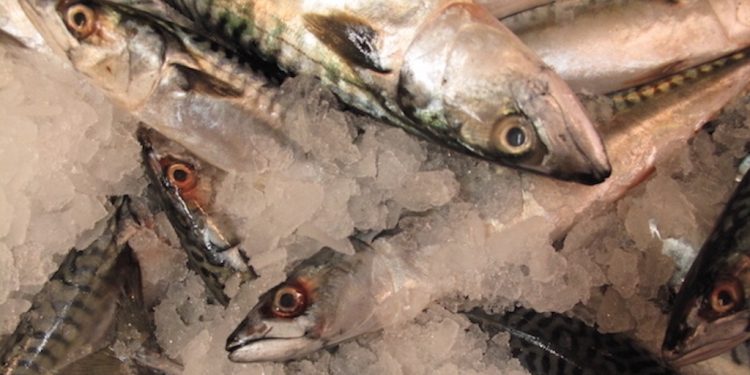The Scottish Pelagic Sustainability Group (SPSG) has slammed the Marine Conservation Society’s (MCS) latest update to its Good Fish Guide, and for downgrading north-east Atlantic mackerel from green to amber.
While the amber classification under the MCS traffic light system means that under its own definition mackerel is still an acceptable choice for consumers, the SPSG states that given the current scientific status of the stock, this is an overly harsh assessment and mackerel should retain its green status.
‘MCS states that the stock has declined since 2015, which is true but needs to be put into context. The scientific assessment of mackerel goes back to 1980, the 2015 stock biomass was the highest recorded in the 40-year study period at almost 6 million tonnes,’ said SPSG chairman Ian Gatt.
‘It’s clear that the ecosystem cannot carry that biomass of mackerel, therefore, the stock is back to above average levels. It is not true to say the stock continues to decline as it has been stable over the last couple of years. What’s also clear from the advice is there is a large influx of juvenile fish coming into the stock. This has been witnessed by our fishermen on the grounds.’
The most recent ICES advice states that the stock biomass is 3,769,326 tonnes which is 46% higher than the ICES Maximum Sustainable Yield (MSY) value of 2,580,000 tonnes.
‘MCS has chosen one matrix to say the stock is overfished which is fishing pressure, but they completely ignored the fact that the stock biomass is 46% higher than ICES scientists’ assessment of maximum sustainable yield,’ Ian Gatt said.
‘This begs the question why MCS chose to do this – they are either incompetent and don’t have a robust methodology for their assessments, or they are working to an agenda that Scottish fishing is unsustainable. It was only last year that they made the same accusation about Scottish anglerfish and brown crab.’
He commented that for some years SPSG has been asking for a meeting with MCS to discuss the methodology and assessment model used to churn out what Ian Gatt describes as ‘spurious facts.’
‘So far they have refused to engage with us,’ he added.
‘While we recognise that fishing pressure for north-east Atlantic mackerel is higher than desired due to the failure of coastal states to agree catch shares, it is simply untrue to say that the stock is in bad shape. The current management situation has arisen because several countries participating in the fishery have all unilaterally increased their mackerel quotas outside any international agreement.’
He commented that quota sharing negotiations have been in progress for 15 months and progress has been made, but this ‘will require more time to finalise an agreement.’









